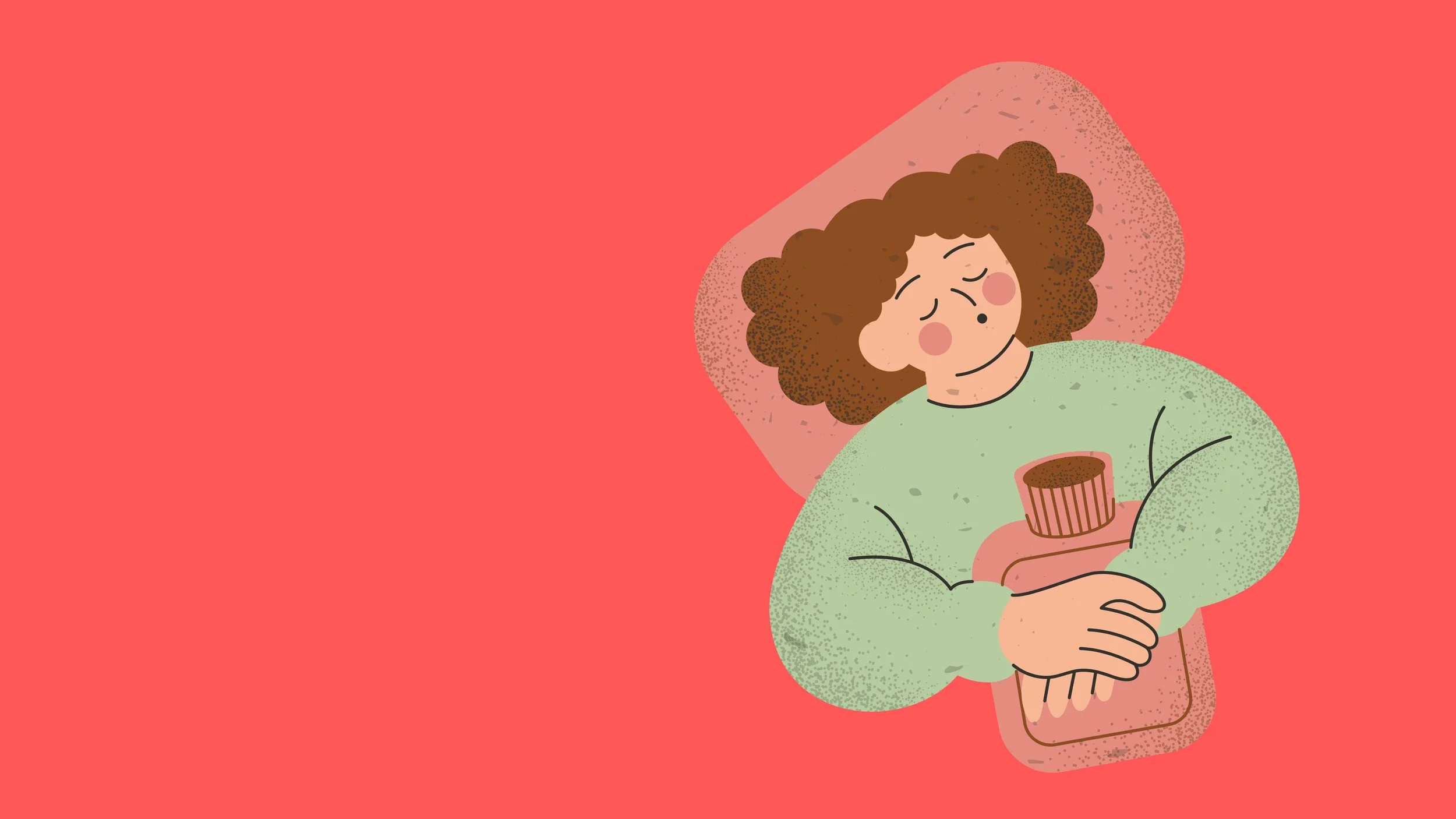
Periods
Menstruation, or your period, is a normal part of growing up and a sign that your body is healthy. This page explains what periods are, why they matter, and how to manage them so you can feel confident and comfortable.
-
A period is when you bleed from your vagina for 2–7 days each month. This happens because your body sheds the lining of your uterus (womb), along with some blood. The blood can be bright red, dark red, or brownish, and you may lose up to 5 tablespoons (80 ml), which is normal. Periods are part of your menstrual cycle, which is controlled by hormones and prepares your body for potential pregnancy in the future.
-
The menstrual cycle is the time from the first day of your period to the day before your next period starts. It usually lasts 21–40 days, with most cycles averaging around 28 days. As a teenager, your cycle may vary by a few days each month as your body adjusts, which is normal. Tracking your cycle helps you know when to expect your period and notice any changes.
-
Your period is a sign that your reproductive system is working properly. It’s an important part of your overall health, and understanding it helps you:
Stay aware of what’s normal for your body.
Notice changes early, like irregular periods or unusual symptoms, which could signal health issues.
Feel prepared and in control by knowing when your period is coming and how to manage it.
-
Everyone’s experience is different, but you may notice:
Tiredness or trouble sleeping.
Cramps in your stomach or lower back.
Headaches or sore breasts.
Changes in appetite (not hungry or very hungry).
Mood changes, like feeling irritable or emotional.
These are normal, but if your period stops you from doing daily activities like going to school or spending time with friends, talk to a trusted adult, school nurse, or doctor for support.
-
Here are practical tips to help you feel comfortable and confident during your period:
Track Your Cycle: Use a notebook or an app (like Clue or Flo) to record when your period starts and ends. This helps you prepare and notice if anything changes.
Ease Cramps: Try a hot water bottle, warm bath, or gentle stretches. Pain relievers like ibuprofen can help, but ask a parent or doctor before using them.
Stay Prepared: Keep period products (pads, tampons, or menstrual cups) in your bag or locker. Plan ahead for school or travel.
Stay Healthy: Eat balanced meals with fruits, vegetables, and iron-rich foods (like spinach) to stay energised. Drink water and aim for 8–10 hours of sleep.
Practice Hygiene: Wash your hands before and after changing period products. Clean your genital area with water (avoid scented soaps) to prevent infections like thrush (itchiness) or urinary tract infections (pain when peeing).
Talk About It: Share questions or concerns with a parent, older sibling, friend, school nurse, or youth worker. If your periods are very painful or overwhelming, see a doctor
-
Choose products that suit your comfort and lifestyle:
Pads: Stick inside your underwear. Easy to use, great for beginners or heavy flows. Change every 2–3 hours or as needed.
Tampons: Inserted into the vagina. Change every 4–6 hours. If they’re uncomfortable, talk to a doctor.
Menstrual Cups: Reusable cups inserted into the vagina. Wear up to 12 hours, good for lighter flows and eco-friendly. Rinse and clean as directed.
Period Underwear: Absorbent underwear for light or heavy flows, especially at night. Change as recommended by the product.
Try different options to find what works best for you. If you need supplies but can’t access them, talk to a school nurse or youth worker for help.
-
Use heat pads or hot water bottles for cramps.
Eat nutritious foods and stay hydrated.
Try light exercise, like walking, or relaxation techniques, like deep breathing or journaling.
Rest when you feel tired.
Talk openly with trusted people about your period.
Consider supplements (like iron) if recommended by a doctor.
Plan ahead for trips or school by packing extra supplies.
Ask for flexibility at school, like bathroom breaks, if needed.
-
Most period symptoms are normal, but talk to a doctor if you notice:
Heavy bleeding (changing pads every 3 hours or less).
Periods lasting longer than 7 days.
Severe pain in your stomach or back that stops you from daily activities.
Pain when peeing or pooping.
Bleeding from your bottom.
Extreme tiredness, thigh pain, or fainting.
A doctor can help diagnose and treat any issues.
-
In the UK, including Wirral, young women can access free period products through the government’s Period Product Scheme, available in all state schools and colleges, including Wirral Metropolitan College, with products like pads, tampons, and eco-friendly options.
Simply ask a teacher, school nurse, or youth worker at your school or college, and they can help you access these products for free, often from discreet locations like toilets or reception.
Wirral Council also offers emergency packs at libraries and youth hubs—call 0151 691 8101 or check wirral.gov.uk for locations like Birkenhead Library.
Charities like Freedom4Girls (text “PERIOD” to 88877) and Aldi stores in Wirral (e.g., Bidston, Upton) provide free products, while HSIS youth workers and local food banks, like Trussell Trust in Tranmere, offer additional support to ensure you stay confident and comfortable.

